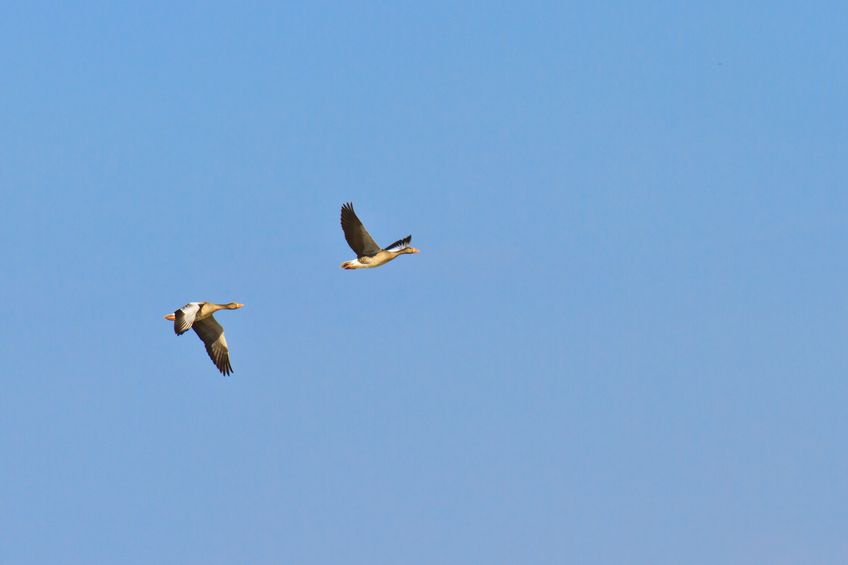
The government has raised the risk of bird flu in wild birds to 'high' following two confirmed cases in Cheshire and Kent.
Farmers have been told to prevent direct or indirect contact with wild birds, with the risk of infection of poultry also being raised from ‘low’ to ‘medium’.
The UK's chief vets made the announcement on Friday (6 November) following the two unrelated cases in England.
Avian influenza of the H5N2 strain was first confirmed on Monday 2 November in a small commercial poultry premises in Kent.
A 1km low pathogenic avian influenza LPAI restricted zone was put in place, and all birds were culled.
A separate and unrelated case of avian influenza of the H5N8 strain was later confirmed at a site in Cheshire.
A 3km protection zone and 10km surveillance zone were put in place and all 13,500 birds at the farm were humanely culled.
The chief vets have urged farmers and keepers to strengthen biosecurity measures in order to prevent further outbreaks.
It comes as mainland Europe reports increasing cases of the disease, with outbreaks reported in the Netherlands and Germany.
Testing has confirmed that the UK's cases were from the highly pathogenic strain related to the virus currently circulating in Europe.
A statement from the chief vets said: "We have acted quickly to prevent the spread of disease at both sites in England and are continuing to monitor the situation closely.
"Bird keepers should remain alert for any signs of disease and report suspected disease immediately."
They added that the risk of transmission of avian influenza viruses to the general public in the UK remained very low.
What can I do to boost biosecurity?
Defra has laid out some simple measures that all farmers and keepers should take to protect their birds:
• Keeping the area where birds live clean and tidy, controlling rats and mice and regularly cleansing and disinfecting any hard surfaces
• Cleaning footwear before and after visits
• Placing birds’ feed and water in fully enclosed areas that are protected from wild birds, and removing any spilled feed regularly
• Putting fencing around outdoor areas where birds are allowed and limiting their access to ponds or areas visited by wild waterfowl
• Where possible, avoid keeping ducks and geese with other poultry species.
